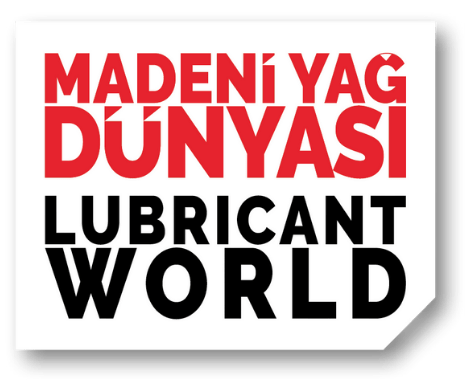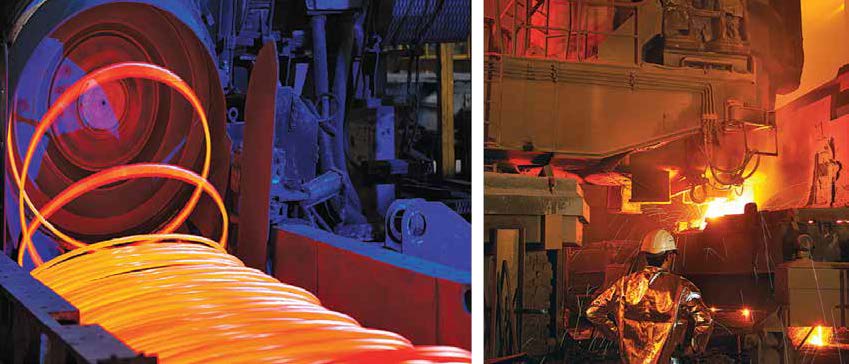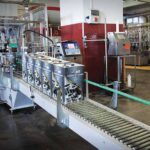Indıcating that lubricants used in the iron and steel industry are highly important, Italian Fratelli Ricci Sales Director Gastaldi says, “Unfortunately most of the producers focus on pricing rather than products that will decrease actual costs, and this old approach pushes them away from innovation.” Gastaldi, also providing his views on the Turkish market, pointed out that Turkish producers will have difficulties in profitable international markets…
Listed among Italy’s largest industrial enterprises active in major sectors such as textile, leather and cosmetics, Fratelli Ricci is also producing special lubricants for the iron and steel industry, and has operations in the Turkish sector for a long time. We made an interview with Fratelli Ricci’s Sales Director Maurizio Gastaldi about the iron and steel industry in the world and Turkey, and received his future projections about the sector. Gastaldi believes that there is an urgent need for a new approach in order to revive the sector which no longer has the glory of old days. mr. Gastaldi, first of all we would like to introduce u to our readers.
Could you please provide us some information about yourself?
I was born in Genoa in 1957. I have a chemical degree and Nuclear Plant Chemical Engineering. Instarted my career as Process Engineer in Ansaldo for the Nuclear PWR Project on License of Westinghouse. After this experience, I entered the Steel Industry covering several roles in ILVA Taranto, Cornigliano. I received training on the job in Kimitsu Wks (Nippon Steel Corp.) in Japan for one year, and had several Experiences in Sollac Florange, St. Agathe from continuous castings, hot rolling mills, and cold rolling areas. Then I entered the Stainless Steel sector as Wks Manager in Arinox by Arvedi Group. After these experiences, I focused my attention to the Process luids and Lubrication sector formetalworking and metalforming operations in several chemical companies. Now I am the Sales Director for Fratelli Ricci Company.
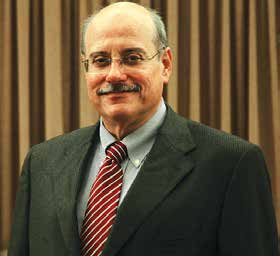
You have visited Turkey after a long time. What are your impressions about Turkey?
My first time in Turkey was in 1995, so about 22 years ago. Of course, there is a very big difference in a lot of fields. At that time only Istanbul could be considered a very developed “western-style” city that was continuously growing. But when I left Istanbul for other cities, it was evident for me that Turkey was still an old and traditional Country. Nowadays a lot of infrastructure works have taken place and the modernization can be touched on all fields of the real life. It is always interesting for me to meet and deal with Turkish people that have maintained and strongly defends its traditions but not forgetting that the competition needs much more modernization and development. In this view, the new generation, like always and everywhere, is the most important source for “changing the general mentality” and remove the “rust and traditional” mentality imposed by the old generation. I have a great belief in the youngest!
“Turkish companies may have difficulty in competition”
How do you interpret the production process iron and steel industry in Turkey?
Compared to many years ago, the general environment has totally changed. But the Metal Sector and, specifically, the Steel Sector, has been obliged o follow a global international trend that sometimesdoes not match the national policy. We talk sometimes of globalization in terms of international changes due to the new faster and efficient technologies of mmunication. The Steel is a globalized sector sincelot of years due to the strong internal – among the producers – and external – with other alternative materials like aluminum, light metals and plastic – competition. You have to think that only 40 years ago the steel was the major component of a car and the body car thickness was around 1 mm. Nowadays it is around 0.5 mm and, for several models, plastic and aluminum have substituted the steel. Turkey has developed a lot through several market driven investments but, in my opinion, many small companies may find it difficult to penetrate profitable international markets and are weak when facing periodic pricing troubles.
Would there be new collaborations between Italy and Turkey in the iron and steel sector?
This is very difficult to be established for several reasons. The strong competition has drastically reduced the investment capability of the Steel Industry. Nowadays the most modern and efficient plants are in the Far East while the oldest and highly costing ones remained in Europe. This gap cannot be easily covered only through the “old cost reduction” politics. Most of the European companies are leaving the Steel Production Sector because of the relatively low profitability, high volatility and moreover with a very long term investment payback. Very few Investors have enough financial power to sustain giant investments in the Steel Sector whose payback can only occur in more than 20 years. Very few producers vision is focused on innovation like, for example, the Arvedi Group. Unfortunately the Steel Sector request heavy financial investment and the ROI is very risky considering how weak and floating is the steel market pricing. In this environment only technical cooperation can be established aiming new production technology. Anyway, some “movements” are in due course like, for instance, the ILVA acquisition that saw Eregli Group initially involved. We will see.
What do you think needs to be done for further development and growth in the iron and steel industry?
The steel sector, especially after the Second World War, has always been considered a strategic and human intensive sector, so able to provide huge stable employment levels for the people. This means it is a very important sector by the political point of view. Today, all governmental companies are moving to privatization due to the difficulty of management and relatively high risk of big losses. On my opinion the road for coming out by a global difficult competition consists in middle roads solutions: a) Private and public financial groups should collect and collate together all the small companies. b) A good selection and decision on reducing the old plants presence and replacing them through correct and proper investment on high value finished product should be placed. But we cannot forget the Chinese explosive production capacity that is influencing the global market as we saw along the steel crisis of 2015.
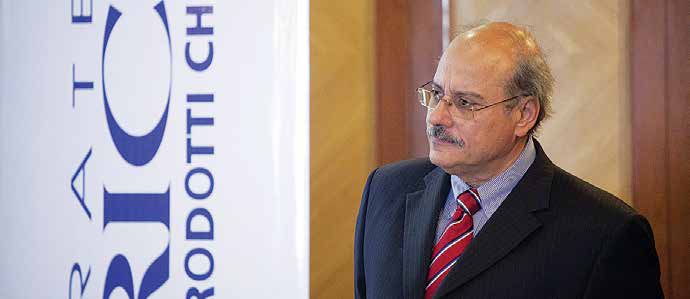
“Producers attach more important to pricing than costs”
Could you please give us some information about the use and importance of the lubricants in the iron and steel sector during the production?
My Company has completely changed the philosophy in the sector. The Lubricants market demand is lowering and looking for high performing and environmentally friendly products. In this view, 5 years ago we decided to introduce completely new products aiming to achieve real important targets for our customers. The Process Fluids field is always asking for better and better finishing requirements and lower product costs but not focusing which are the real targets to be achieved. For example, an invaluable advantage was to supply a rolling oil able to reduce the water consumption of 40 percent in a big plant of the Middle East where the water cost is very high. In Italy on the opposite, we could supply rolling oil able to provide – on a regular base – an energy saving of 18 percent in comparison to a traditional product. This is a new approach that we apply, changing completely the traditional Product Portfolio that was always looking at product consumption, an old way to evaluate the lubricants efficiency. Most of our customers do not look at the real global costs reduction of the process but on the product pricing. These oblige the R&D of the Lubricants manufacturer to provide low efficient products competing on pricing. Several customers are still reluctant to “open and apply a real global costs” reduction. Old mentality brings to evaluate traditional parameters with scarce influence on the real costs and not considering the real costs where they are really allocated.
